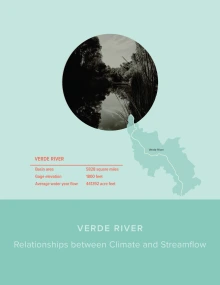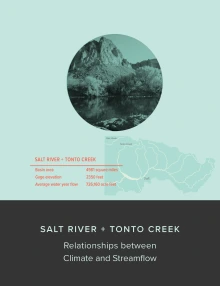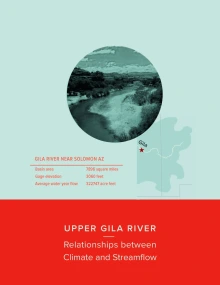The overarching goal of this study is to evaluate the seasonal climatic components that control surface water supplies in the lower Colorado River basin (LCRB), with a specific focus on the influence of temperature on annual streamflow in recent decades. The project team identified interested resource management partners in the LCRB to help shape a research agenda that addressed climatic controls on surface water supplies in ways that are relevant to resource management. We began a dialogue in late summer 2018 with a small group (10-12) of potential research partners to identify research questions, followed up with a webinar in spring 2019, and have continued to work with a subset of these partners on topics of interest (e.g., Flagstaff Water, SRP, and CAP). Analysis of the relationship between temperature and streamflow in three basins in Arizona (Verde River, Salt River & Tonto Creek, and Gila River) revealed that while cool season precipitation is the most important control on annual streamflow, the role of the monsoon in mediating the impacts of a dry cool season or a multi-year drought is notable, particularly in the upper Gila River basin.
A set of fact sheets (linked below) describe the main results for the climate and streamflow analysis of the Salt, Gila, and Verde Rivers. They highlight the main points regarding streamflow and climate relationships, trends in key climatic variables, and the role of climate during multi-year droughts.




